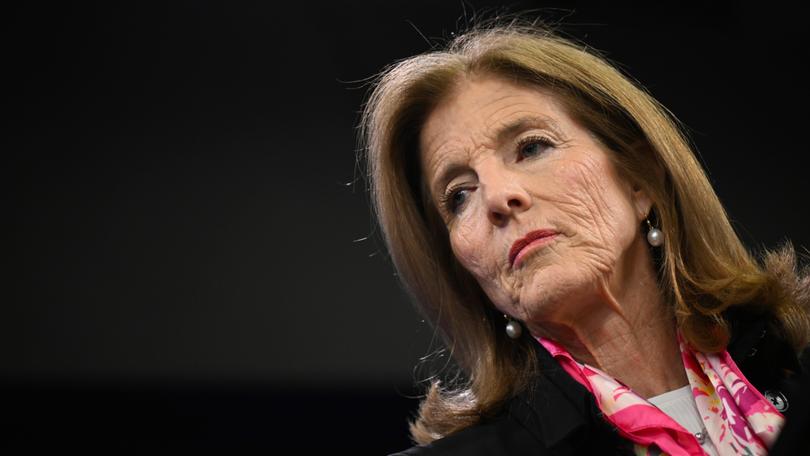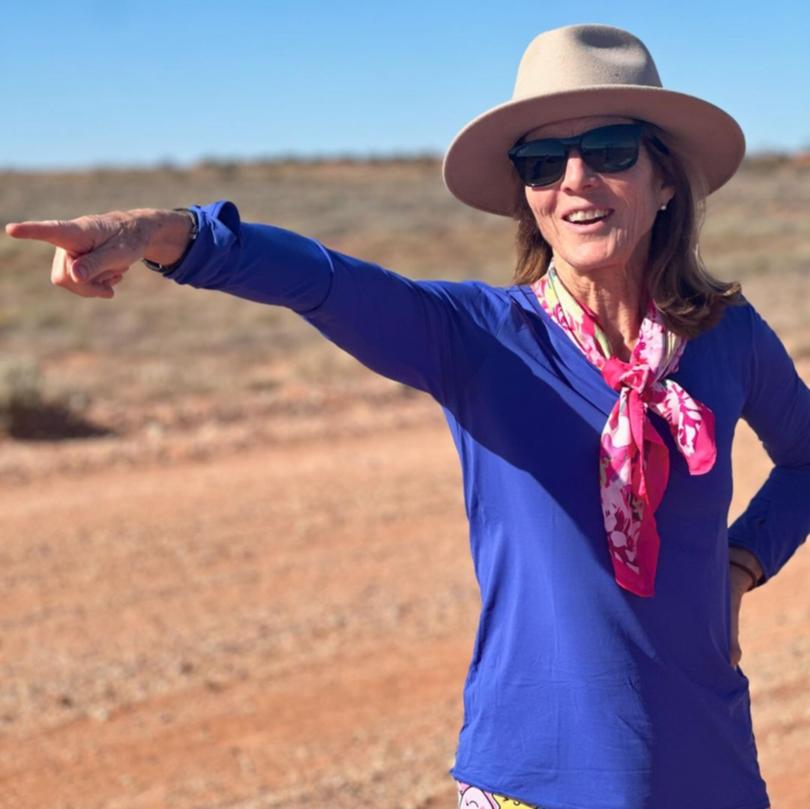Australia ‘number one’ US ally in dangerous strategic environment, says outgoing Ambassador Caroline Kennedy
Australia is ‘no longer deputy sheriff’ to the United States but a ‘teacher and partner’ in an increasingly dangerous strategic environment, outgoing US Ambassador Caroline Kennedy said on Monday.

Australia is “no longer deputy sheriff” to the United States but a “teacher and partner” in an increasingly dangerous strategic environment, outgoing US Ambassador Caroline Kennedy said on Monday.
The ambassador made her comments in a wide-ranging farewell speech to the National Press Club designed to reassure Canberra of the “continuity” of US engagement amid regional jitters about a potentially unpredictable approach by the incoming Trump administration to Indo-Pacific security.
The ambassador, who has just weeks left in her posting, used one of her final public engagements to laud Australia as Washington’s “most glorious friend,” praising the allies’ cooperation on security and defence, climate action and securing critical minerals and supply chains.
Sign up to The Nightly's newsletters.
Get the first look at the digital newspaper, curated daily stories and breaking headlines delivered to your inbox.
By continuing you agree to our Terms and Privacy Policy.“Australia may be a middle power but to the United States, you are number one. We have no more trusted or capable ally. In every dimension of our relationship, I have seen the United States rely on Australian leadership and experience,” she said.
While addressing a string of questions about concerns over President-elect Donald Trump’s controversial cabinet picks, the future of intelligence cooperation and Washington’s future position on the climate crisis, Ms Kennedy urged people to “just calm down and wait and see what happens.”
She refused to be drawn over whether a Trump White House would shift the direction of US policy towards regional security, doubling down instead on a robust defence of the AUKUS nuclear-powered submarine deal as “already a game-changer,” when it came to deterrence.

The allies were only three years away from the first rotational deployment of a Virginia-class submarine in Perth, and eight years from the first sovereign Australian nuclear-powered submarine, she pointed out, while warning against complacency.
“We have made remarkable progress, but we can’t slow down,” she said.
“The greater risks are those of inaction and delay.”
Those who doubted the necessity of AUKUS need only turn to the Philippines and Vietnam, who were having their “ships rammed and sunk by Chinese coast guard vessels” or to Japan, which was facing missiles landing close to shore, she said.
“Ask our private sector what the consequences are from the damage to undersea cables in the Taiwan Strait,” she added.
“The long delays and higher prices that result from the Middle East conflict are insignificant compared to the global consequences of conflict in this region. AUKUS is an existential investment in Australia’s sovereignty and way of life, and you can’t put a price on that.”
Ms Kennedy said the US, under President Joe Biden, had “advanced the most consequential and ambitious bilateral security agenda with Australia since WWII,” as she sought to quell anxieties over Mr Trump’s more contentious nominations for his administration.
Among the most controversial is Tulsi Gabbard, the nominee for director of national intelligence, who has been accused by critics of harbouring sympathies for the Kremlin.
Asked if Australia could trust the US with sensitive intelligence in future, the ambassador offered a reassurance.
“There are thousands of people who work in our intelligence agencies and more closely with Australia and we have no more trusted or capable ally and that’s going to continue,” she said.
But she criticised the vaccine scepticism pushed by her own cousin, Robert F. Kennedy Jr, who has been announced as Mr Trump’s choice to head up the powerful US Department of Health and Human Services.
“I think Bobby Kennedy’s views on vaccines are dangerous, but I don’t think that most Americans share them,” she said.
Mr Kennedy, a former environmental lawyer turned politician, has been accused of spreading misinformation about vaccines, including claims that they cause autism – a theory discredited by scientific experts.
By contrast, the ambassador stressed her family’s long-running and “united” support of the public health sector and its “greatest admiration for the medical profession.”

